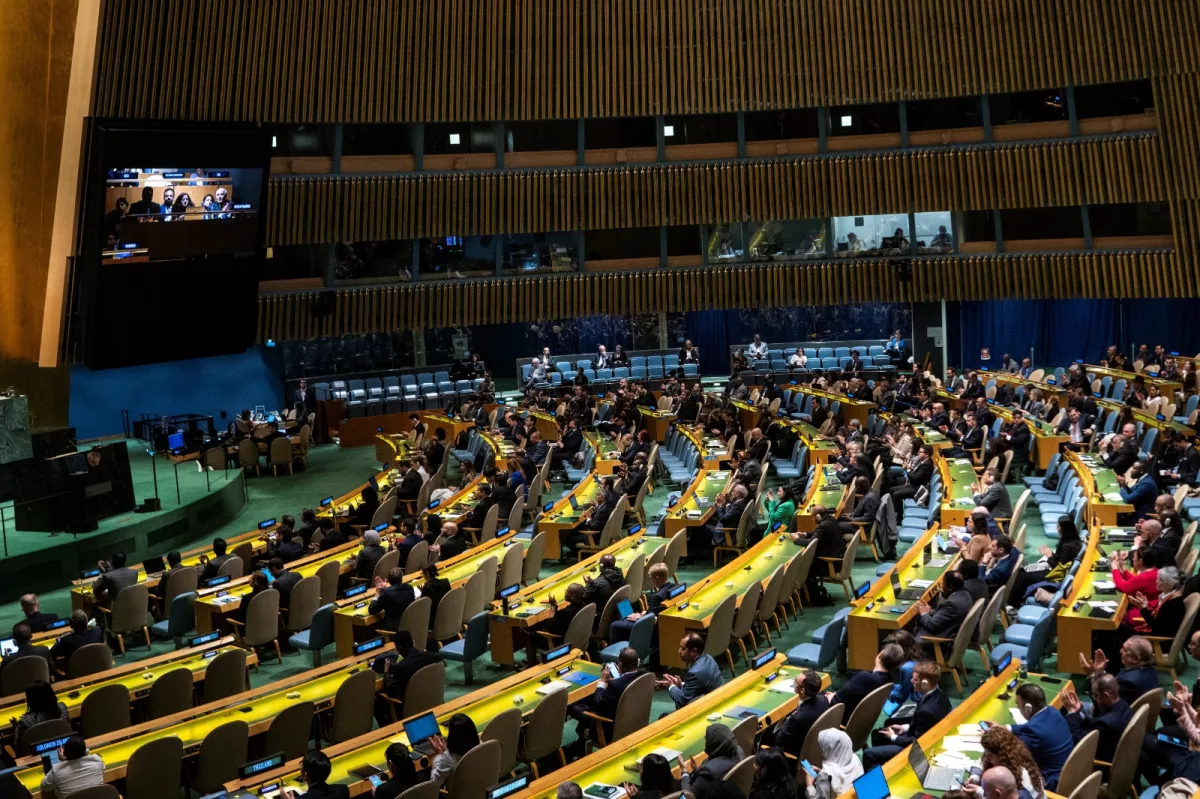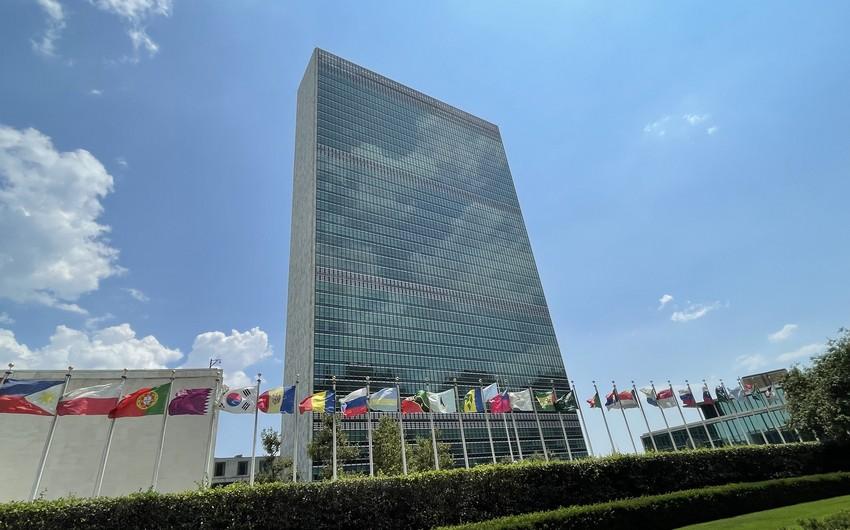From revolutionary situations to reformative solutions Global Governance in Crisis
The latest session of the UN General Assembly demonstrates that the crisis of global governance has reached a point where it can no longer be ignored, yet answering the question "what to do?" remains elusive. The revolutionary situation in the world system threatens many important diplomatic achievements of humanity over the past eight decades. To preserve these achievements, the UN must return to its original settings.
The high-level week during the annual session of the UN General Assembly went as expected. It attracted significant attention from global media and numerous political commentators who sought interesting nuances in speeches from the high tribunes, as well as relished various diplomatic demarches and non-verbal messages. The highlight of the 79th session, as planned by its organizers, was the Summit of the Future and the adoption of the "Pact for the Future." However, the UN Secretary-General António Guterres, who proposed the summit back in 2021, and his entire team were unlikely to be satisfied with the final outcome.
Despite the lingering possibility of a complete failure of the initiative until the last moment, the pact was eventually approved. The document turned out to be extensive and addressed all the most sensitive UN issues. However, over its vague and noticeably hollow verbosity, crafted in the best bureaucratic traditions of this organization, a deafening silence of political will from the global community and its inability to take real action hung heavily.
Mutual understanding on lack of consensus
The main conclusion that can be drawn from the 40 pages of the "Pact for the Future" and the two accompanying appendices is that all countries in the world are united in their assessment of the current situation. They have effectively endorsed the notion that the future of the UN, and humanity as a whole, is heading in the wrong direction—or is not moving at all. It is stagnating, falling further behind in the face of swift and, at times, catastrophic processes.
This is, in some respects, a remarkable rhetorical consensus that has transcended all boundaries and conflicts of interest. It manifested not only in the text of the approved pact but also in the speeches of national delegation leaders from the podium of the General Assembly and during numerous side events. Literally, all of them emphasized in unison that the UN is failing the test of time regarding the unity of the global community in the face of escalating crises. Instead of effective and equitable multilateralism—one that considers the basic interests of all parties in multilateral cooperation—there is an increasing tendency to make unilateral, selfish decisions. This is occurring precisely when multilateralism is most needed, as it is impossible to maintain a shared human course toward a bright future during periods of significant global turbulence.
These overarching themes were woven throughout all the speeches. At one point, it seemed tempting to offer a suggestion to the UN Secretariat: why not display a scrolling ticker in the assembly hall listing the Organization’s endless failures in fulfilling its crucial and noble mission? This would spare world leaders the need to rehash the obvious facts and allow them to focus on the real question at hand: what should be done?

Naturally, national delegations would also pay attention to another age-old question: who is to blame? In today’s international climate, this is unavoidable. After detailing the many failures of multilateralism, they inevitably turned to assigning blame. Some pointed fingers at geopolitical rivals, others laid blame on neighbouring countries, while some hinted at a shadowy global conspiracy—whether bureaucratic or financial. Smaller nations condemned the hypocrisy and neocolonialism of the great powers, while the latter lamented the naivety and shortsightedness of certain smaller states. There were even those who boldly acknowledged, "We are all to blame."
In this sense, the 79th session of the General Assembly was much like those before it. Everyone aired their grievances, focusing on their own pressing issues. And what could feel more personal and urgent than blaming others?
In the end, despite a consensus on the depth of the crisis, the chorus of divergent accusations fails to coalesce into the formula of "unity in diversity," which is the cornerstone of effective multilateralism. Beneath the finger-pointing lies a reluctance to compromise, even on the most fundamental issues. The world's most powerful nations—chief among them the United States—are showing decreasing interest in genuine multilateralism, as opposed to rhetorical gestures.
In such an environment, addressing the question "What should be done?" becomes almost impossible. This is why the 56 specific actions outlined in the "Pact for the Future," which UN member states have pledged to implement to revive effective multilateralism, are likely to remain nothing more than well-meaning aspirations. We could continue discussing their importance for many years to come, while taking no real action—until that elusive political will finally materializes.
"The elites can't, and the masses won't"
The entire situation, especially after listening to the speeches of numerous national leaders at the General Assembly, evokes a growing sense of chaos. There is a pervasive sense of ungovernability, making it seem impossible to manage the escalating destabilization of the global landscape.
It brings to mind Lenin's famous phrase: "The elites can't, and the masses won't." If the world’s political structure resembled that of a state, one could conclude that we are witnessing a revolutionary situation, with a strong chance of success. As Lenin wrote in 1920, " It is only when the ‘lower classes’ do not want to live in the old way and the ‘upper classes’ cannot carry on in the old way that the revolution can triumph."
However, international politics is not equivalent to domestic affairs. It has its own unique dynamics and operates under different rules. Unlike the political systems within states, international relations are inherently non-hierarchical. They are anarchic in the sense that there is no universally recognized supreme authority with legitimate power to make ultimate decisions. The highest authority in international relations is national sovereignty, and today there are nearly two hundred such "supreme powers." This is why a revolution, in Lenin's sense of the word, has no target in the realm of international relations—it has no ruling class to overthrow.
The UN (and, before it, the League of Nations) was envisioned by various theorists and practitioners as a means to partially compensate for the absence of a supranational authority in the world. This does not imply that its mandate would elevate it above national sovereignty or enable it to dictate terms to independent states—that is simply impossible. The intention was and continues to be different: the sovereign will of states should converge into collective decisions about the rules and norms that govern their interactions. There should be a codification of these relationships to curb the most egregious manifestations of international anarchy. The United Nations is designed to serve as a tool for the daily implementation of international law that reflects the will of states, as well as a forum for coordinating the interests of sovereign actors.

From this perspective, if a revolution were possible in contemporary international relations, it would likely target the UN itself and the system of international legal obligations built around it. Unfortunately, something akin to this is already happening. Instead of a revolution, we are witnessing a protracted transformation of the entire system of international relations. It is shifting from unipolarity to a more decentralized (though still somewhat undefined) structure. In this process, as we have noted, the UN is losing its significance and appeal. The inability of the global Organization, particularly the UN Security Council, to fulfil its mandated mission naturally leads to important discussions and decisions being shifted to other, more fragmented, and exclusive platforms.
Reset to factory settings
The deepening crisis of global governance has another significant yet rarely discussed consequence. It can be summarized as follows: there is a "reset to factory settings" in the orientations and frameworks of states' foreign policies. This is a natural response from countries when international institutions cease to fulfil their fundamental functions of maintaining predictability in interstate interactions based on a universal interpretation of international law. As a result, states increasingly ignore previously established norms of international communication, forget the values that were once lauded, and revert to a more traditional understanding of their national interests.
This, in turn, leads to a diminishing role for ideology in international affairs and the real decision-making processes surrounding foreign policy and security. Even if politicians continue to wave ideological banners, realpolitik is increasingly driven not by value-based beliefs and grand ideas (such as promoting democracy or socialist justice) but rather by a constant and cynical calculation of risks and opportunities.
In this context, states are becoming less differentiated by their value orientations and more so by their fundamental structural characteristics, such as size and geopolitical position. These characteristics determine their capabilities and constraints in international affairs, along with their models of foreign policy behaviour. As a result, small states in various regions of the world are increasingly resembling other small states—sometimes located thousands of kilometres away—and becoming less similar to other types of countries, even those they neighbour. The same holds true for middle powers and so-called great powers.
To understand and predict state policies, it is essential to focus primarily on such structural characteristics rather than, for instance, their affiliations with various alliances or blocs. A telling example of this is the increasingly visible contradictions within various integration organizations, as well as the emerging lines of tension within the UN.
This does not mean that such integrative entities are destined for inevitable failure or that a padlock will soon be hung on the door of the UN headquarters. Far from it. Those organizations that adapt to the changing landscape are likely to thrive with renewed dynamism. Therefore, it is in the interest of the global community to restore the UN to its "factory settings" as quickly as possible.








